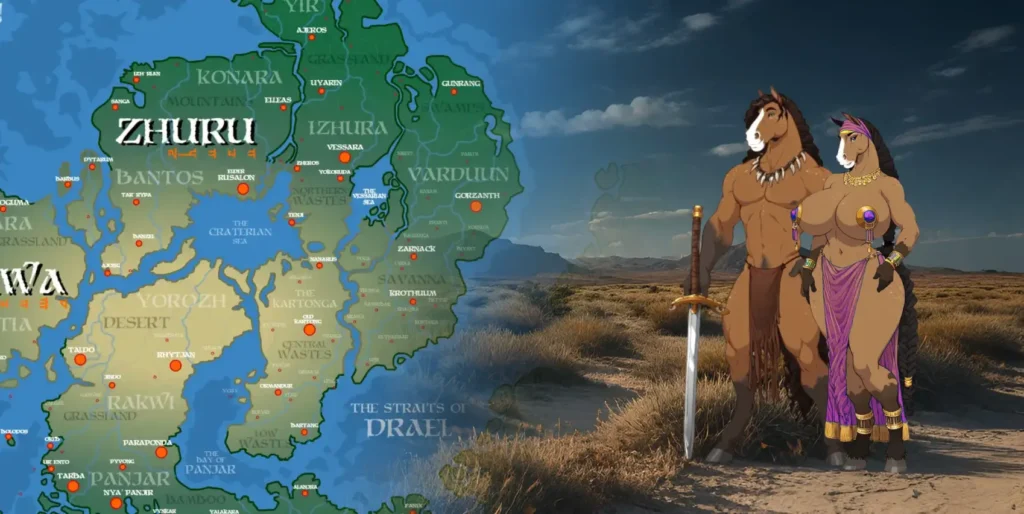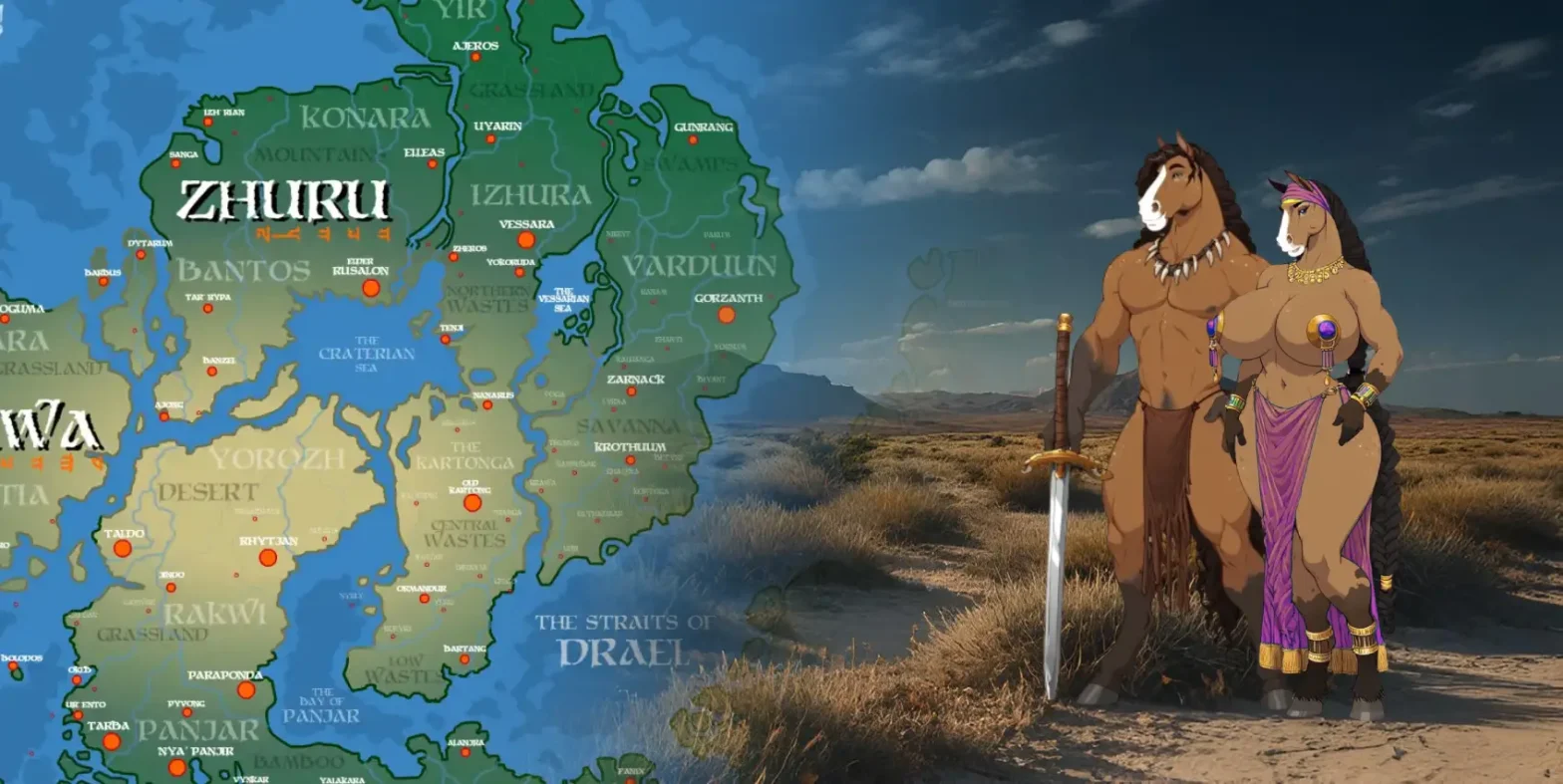The Grassland Courts
Izhura unfurls as a broad and tranquil sweep of grass. The winds are softer here, the soil richer, yet still the land refuses the plow. It is no breadbasket—fields wither, harvests fail—but the grasslands are fertile for herds and caravans, and so the Izhurans turned their destiny toward trade. Their roads run like veins across the plains, caravan after caravan, their merchant cities growing not from farming but from the pulse of goods moving between desert, steppe, and coast. To the east the grass grows heavier, swelling into swamp, while westward it thins toward dust.

This is the realm of the equine folk—barbarian merchants whose strength is in their dual nature. Their warriors are famed for endurance, broad-shouldered and relentless. Their merchants are straight-dealing and shrewd, winning trust where others scheme. Their kings, by contrast, are hungry-eyed, calculating dynasts, forever measuring how to carve power from opportunity.
Among them, the females stand as visions of exotic splendor, veils and gold adorning their bodies, bosoms bared as symbols of wealth, virility, and divine favor.
Side by side with them dwell the cervine kingdoms, antlered dynasties proud and aloof, their courts coldly civil to their equine neighbors. Their tribes, however, mingle more freely: deer blood crosses with horse blood often, for the cervine of the plains have little patience for their haughty elk cousins in Konara. To outsiders, the two races seem forever opposed; in truth, their mingling is constant, their rivalries little more than ritualized pretense.
Izhuran culture is a feast of flesh and fire. They are known across Zhuru for virility, for stamina, for a sexuality woven into every rite and icon. Their temples rise as places of song, dance, and coupling, where rut is sacred and passion is seen as a gift of the earth itself. Councils of tribes meet to settle quarrels, but war is never far; sabertooth warlords ride the plains, direwolf bands raid from the wastes, and when there are no enemies abroad, the tribes contend with one another.
The Izhurans carry a heavy inheritance. Their bloodlines are tangled with the drowned empire of Xzlkul, the northern colonial nation that once ruled much of Zhuru before it was swallowed by the sea. The equine tribes of Zheria—enslaved as breeders and traded as chattel by Xzlkul—emerged free only when their masters drowned. From this hodgepodge rose the Zheri, progenitors of today’s Zhurians, a people both proud and scarred, their heritage equal parts conquest and survival.
Their numbers, however, remain fragile. Izhura has bled in two great wars—one against the lion kingdoms, another against the jackals of Bantos—and both were near-ruinous. They cling to survival now with desperate pride, straining to maintain strength against enemies who would gladly see them diminished further.

